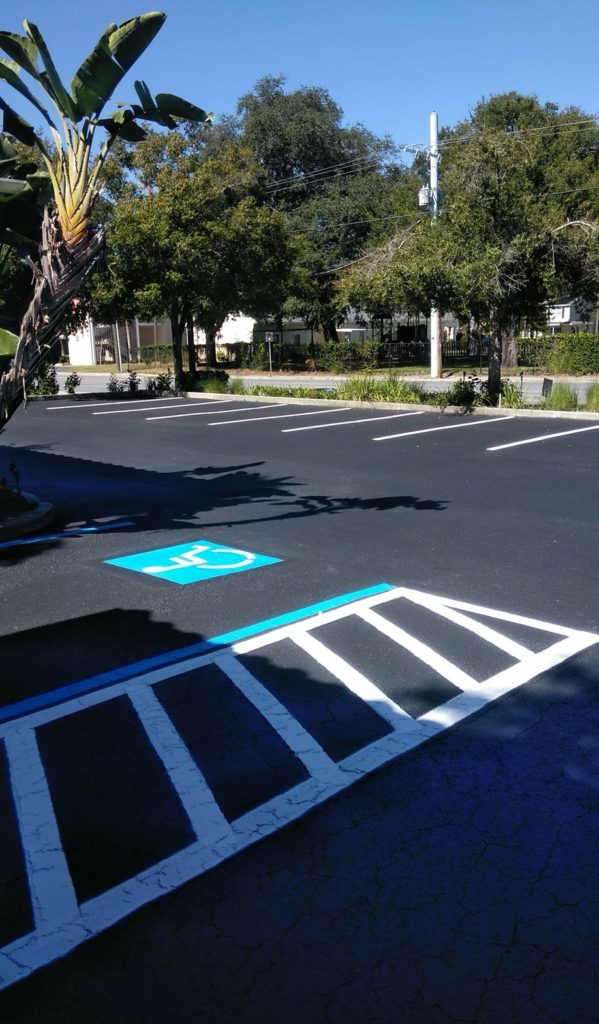Take Full Advantage Of Financial Investment Returns: Angled Parking Lot Excellence with Asphalt Sealing
Take Full Advantage Of Financial Investment Returns: Angled Parking Lot Excellence with Asphalt Sealing
Blog Article
Hot Mix Asphalt: A Sustainable Option for Sidewalk
Warm Mix Asphalt (HMA) has become a leading sustainable selection for sidewalk options, supplying a myriad of environmental benefits and cutting-edge modern technologies. Its capacity to reuse products and reduce power intake presents an engaging instance for its adoption in roadway construction tasks. The long-lasting performance and resilience of HMA make it a preferred option for framework advancement. As the demand for eco-friendly building and construction techniques expands, discovering the nuances of HMA's sustainability can provide valuable insights into the future of sidewalk options.
Environmental Advantages of Hot Mix Asphalt

Furthermore, Hot Mix Asphalt assists to alleviate city heat island impacts. Its dark shade soaks up sunlight, reducing the quantity of warm mirrored back right into the atmosphere contrasted to lighter-colored pavements. This can lower ambient temperature levels in metropolitan areas, decreasing the demand for a/c and ultimately decreasing energy usage.
Furthermore, Warm Mix Asphalt adds to enhanced stormwater management. Its permeable nature enables water to reenergize and infiltrate the sidewalk groundwater supplies, lowering drainage and the threat of flooding. These ecological benefits make Warm Mix Asphalt a sustainable choice for paving highways and roads.
Energy Effectiveness in HMA Production
Is energy performance an important factor in the manufacturing of Hot Mix Asphalt (HMA)? Absolutely. Power plays a significant role in the production of HMA, influencing both expense and environmental sustainability. One key aspect of power efficiency in HMA production is the usage of cozy mix asphalt (WMA) innovations (angled parking). WMA permits for the blending and placement of asphalt at lower temperatures compared to typical hot mix asphalt, leading to lowered power consumption throughout manufacturing. This process not just decreases fuel usage but also lowers greenhouse gas emissions, making it a more eco-friendly alternative.
Moreover, innovations in plant innovations have resulted in even more energy-efficient HMA manufacturing processes. Modern plants are designed with attributes like recycled asphalt pavement (RAP) processing capabilities, effective burner systems, and boosted insulation, all contributing to power savings. By enhancing power use in HMA manufacturing, the industry can reduce its carbon impact while preserving top quality pavement products. Energy effectiveness is, for that reason, an essential consideration in guaranteeing the sustainability of Warm Mix Asphalt production.
Recyclability of Warm Mix Asphalt
The recyclability of Hot Mix Asphalt (HMA) is an essential element of its sustainability and long-term ecological impact. HMA is just one of one of the most recycled materials in the USA, with over 100 million bunches of reclaimed asphalt sidewalk (RAP) being recycled annually in brand-new pavement building and construction. Recycling HMA uses several ecological advantages, such as minimizing the need for virgin materials, go to this website lowering power consumption during manufacturing, and lowering the amount of waste sent to land fills.
The procedure of reusing HMA entails crushing the existing sidewalk, squashing it right into smaller items, and blending it with brand-new aggregate and asphalt binder to develop a recycled mix. This recycled mix can typically execute along with and even much better than conventional HMA, while needing less raw materials and generating reduced greenhouse gas emissions. By incorporating RAP into brand-new sidewalk jobs, road agencies can conserve natural deposits, reduce prices, and reduce the environmental impact of roadway building and construction and upkeep tasks. On the whole, the recyclability of HMA plays a considerable duty in advertising lasting methods within the pavement industry.

Long-Term Efficiency of HMA
Asphalt sidewalks demonstrate toughness and resilience over a prolonged duration, showing the long-term efficiency of Warm Mix Asphalt (HMA) Furthermore, improvements in HMA technology, such as the usage of polymer-modified binders and cozy mix asphalt, have further improved the resilience and durability of HMA sidewalks. By prioritizing quality building and construction and upkeep methods, HMA proceeds to confirm itself as a affordable and lasting solution for resilient pavement facilities.

HMA: Longevity and Sustainability
Showing both toughness and sustainability, Warm Mix Asphalt (HMA) has become a keystone in the construction of Check This Out durable sidewalk facilities - hot mix asphalt. HMA's toughness stems from its capability to endure hefty loads, severe climate conditions, and high traffic volumes, making it a reputable selection for roads, highways, and flight terminal paths. The composition of HMA, which generally consists of aggregates, binder, and filler, plays a crucial duty in improving its long life and resistance to tear and reference put on
Moreover, HMA's sustainability hinges on its recyclability and energy-efficient manufacturing process. The ability to reuse reclaimed asphalt pavement (RAP) in brand-new HMA mixes minimizes the need for virgin materials and lessens the ecological effect of sidewalk construction and maintenance. Furthermore, the power effectiveness of producing HMA depends on its lower blending temperature levels compared to various other pavement products, causing lowered energy consumption and greenhouse gas emissions.
Final Thought
Finally, warm mix asphalt (HMA) offers a sustainable remedy for pavement with its eco-friendly features. HMA's recyclability, energy efficiency in production, and long-lasting longevity make it an environmentally friendly choice for road building. By saving natural resources, minimizing waste, and reducing greenhouse gas discharges, HMA plays an important duty in advertising sustainability in facilities growth. Its capacity to reduce metropolitan heat island effects additionally highlights its value in producing environmentally aware and resistant pavement systems.
HMA is one of the most recycled products in the United States, with over 100 million heaps of reclaimed asphalt sidewalk (RAP) being reused yearly in brand-new sidewalk building and construction.The procedure of recycling HMA entails milling the existing sidewalk, squashing it into smaller sized items, and blending it with new aggregate and asphalt binder to produce a recycled mix.Asphalt sidewalks show toughness and durability over an extended period, mirroring the long-term performance of Warm Mix Asphalt (HMA) Additionally, improvements in HMA modern technology, such as the use of polymer-modified binders and warm mix asphalt, have actually additionally improved the longevity and longevity of HMA sidewalks. The capability to recycle redeemed asphalt pavement (RAP) in new HMA blends decreases the need for virgin products and decreases the ecological impact of pavement construction and maintenance.
Report this page